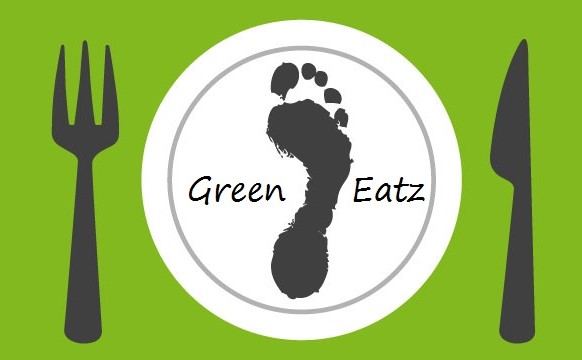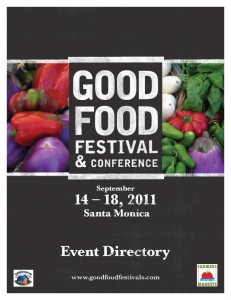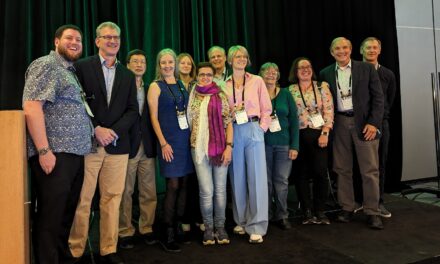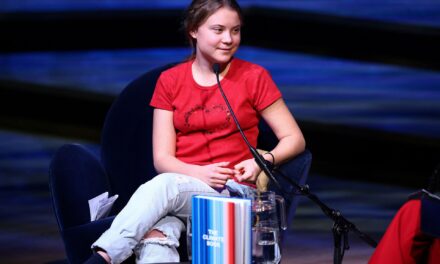Last week, the inaugural Santa Monica Good Food Festival and Conference was held in various locations around the city. As a celebration of 30 years of the local Farmers Market, it brought together such diverse events as a Family Breakfast, a Gala Dinner, a Good Food Conference and a Street Fair. As a relative stranger to these shores, I decided to go along to the Good Food Conference and find out how the US is hoping to tackle its appalling health problems. And whether the environmental impact is given more thought than is apparent at government level.
Making a Difference to Kids’ Health
The opening speaker, Zev Yaroslavsky, a Supervisor of LA County, spoke from personal experience of his own battle with obesity and diabetes. Now looking fit and slim, Zev has been diagnosed with Type 2 Diabetes and realised that he had to make significant lifestyle changes to avoid early disability or death. As for Zev though, once he started to notice that he was on the path to a disability and being unable to work, he changed his diet, started running and is now feeling fit and healthy again. But that is not happening for many of the children in LA County, with Type 2 Diabetes now being the number one disease for kids in this metropolis. So what is being done about it?
- The Mud Baron is the eccentric character responsible for supplying over a thousand school gardens across LA with free plants and seeds
- the Whole Kids Foundation (part of Whole Foods Market) strives to improve children’s nutrition through inspiring parents and supporting schools
- the Pew Environment Group looks into industrial farming operations and how they can been changed to lessen their impact on public health, the environment and local communities
- and MIT is looking into the overall food system and how it can be re-organised to provide a framework for health.
Healthy Food for Everyone
Robert Ross of the Freshworks pointed out that 60% of Californians live in a food desert without easy access to healthy food. As many children have two meals at school per day, providing healthy food there can make a big difference and salad bars are now provided in all Santa Monica elementary schools. The question is, will kids eat salad when it is competing against pizza and tacos? Kelly Meyer believes that providing hands-on experience in school gardens gives kids a real incentive to eat and cook healthy foods. She also comments that healthy eating starts at home with parents, who can take an active part in their children’s dietary needs by making small changes.
Now going from the home to the food court, here’s a surprise – a fast food chain that prides itself on healthy, sustainable food! Chipolte’s CEO Steve Ells spoke of his background as a chef and how he saw a gap in the market for healthy fast food. Ten years, ago, a visit to a CAFO (or factory farm) for pigs also made him realise that he could no longer be involved in this extreme cruelty to intelligent creatures. His answer was to source all his pork form small family-run businesses, and he aims to do that for all his meats.
Public Policy v. Big Business
It appears that most the initiatives being taken on public health are being driven by NGOs (charitable organisations) and at county level through schools and hospitals. So how can we influence the US government to make policy decisions that aim to benefit the health of the nation and the environment we live in, rather than serve the interests of big business?
Patty Lovera from the Food and Water Watch talked of how policy changes must also be backed up by infrastructure and that means money too. Mike Jacobson spoke of how science, education and public awareness can lead to major reforms, although there is often a need to resort to legislation and litigation to ensure that Big Food doesn’t deceive the public!
Something’s missing!
In the whole day, there was lots of talk of sustainability and local farmers and a few mentions of animal welfare. And hey, one person even used the phrase ‘carbon footprint’! But nobody seemed aware or willing to mention the link between livestock farming and greenhouse gas emissions. If everyone in the world ate meat at the same levels as the US, then we would run out of planet to farm all these poor animals.
Find out more at Food’s Carbon Footprint.
Honourable Mention
At the trade show, I met Julian Pearce, the owner of Soledad Goats who produce delicious goat cheese. This a small farm in Mojave that has a no-kill policy for all its goats, male and female. The old ladies are left to live out their lives in family groups in the pastures, whereas the boys are sold as pets or lawn-mowers!








Comments from previous version of Green Eatz
Amy 11/02/2011 02:46
Great green blog! The anti-factory farm video illustrates a movement towards permaculture on larger farms which is happening here in the UK. Check out http://www.regenag.co.uk
Jane of Green Eatz 11/02/2011 15:57
Hey Amy thanks for the feedback. To tell the truth, I wasn’t sure what permaculture meant, so looked it up in Wikipedia. Apparently the term was first used in the 1970s by a couple of Australians to describe a sustainable method of farming that follows in natures path. And RegenAg.com is also an Australian and British organisation which provides education in sustainable farming. Thanks for this info 🙂